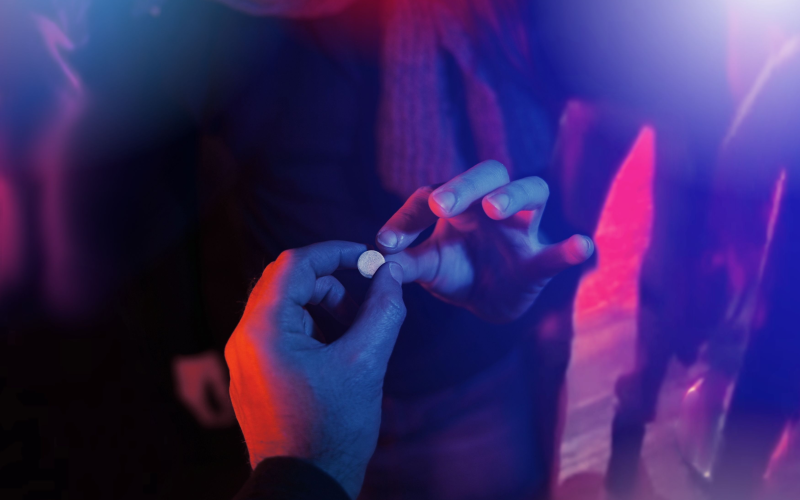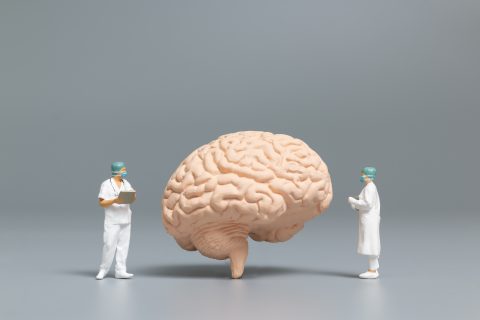Once known only as an illicit party drug, MDMA is now being seriously studied as a tool to help treat patients’ mental health. Science journalist Rachel Nuwer was among the inaugural recipients of the Ferriss–UC Berkeley Psychedelic Journalism Fellowship. She joins host Krys Boyd to discuss how MDMA – once a Schedule 1 drug – is now being heralded as a treatment for PTSD and other afflictions. Her book is “I Feel Love: MDMA and the Quest for Connection in a Fractured World.”
This episode originally aired June 29th, 2023.
MDMA might treat your trauma, but don’t try it at home
By Aislyn Gaddis, Think Intern
Recent clinical studies have shown that MDMA, otherwise known as molly or ecstasy, can be successful in treating addiction and trauma when combined with therapist-guided exercises.
Guest Rachel Nuwer said that researchers are often surprised at the idea of using MDMA, an addictive substance, to treat an addiction to another substance.
“The reasoning here is that much of what drives and underlies addiction is trauma. People are trying to blank out those harmful memories, to escape from their circumstances, to feel the love and connection that they were being deprived of,” Nuwer said. “MDMA-assisted therapy gets at that trauma.”
Nuwer spoke with a participant of a U.K. study that found MDMA is much more effective at treating alcoholism than current methods.
“He had witnessed his mother being murdered when he was a child. Since then, he had suffered from these crippling, excruciating panic attacks,” Nuwer said. “The only thing he found that could calm him down when he was gripped in the midst of this terror was just grabbing a bottle of vodka and chugging.”
Then, he tried MDMA-assisted therapy.
“While it hasn’t, you know, magically cured him of this horrible thing he witnessed as a child, it has given him the tools he needs and sort of a touchstone or frame of reference for when he’s feeling that anxiety,” Nuwer said.
MDMA-assisted therapy works by re-opening windows of time that occur throughout our childhood where we can learn new things, like a language.
“MDMA reopens a key critical period that allows a person with trauma to reevaluate and reassess their trauma and move forward in a more healthy direction,” Nuwer said. “But what those studies also found that’s really, really important is that this only happens in the right context.”
If you attempt MDMA-assisted therapy alone, without the guidance of a therapist, your critical window may not properly open – or worse.
“These can be, you know, really painful, scary memories to navigate. And if you don’t do so with professional help, you can actually wind up making your trauma worse,” Nuwer said.
MDMA has been shown to successfully treat alcoholism, PTSD, and more, and researchers think it might also be able to treat motor dysfunction.
“So, if, for example, you give somebody physical therapy instead of talk therapy, might you reopen a critical period for motor or motor learning? And if you did that, could someone say who had a stroke recover some of their movement?”
MDMA is classified as a schedule one drug, meaning that it is considered highly-addictive and is banned for all use – including in medical treatment. Based on its stage of clinical testing, Nuwer said it could be approved for certain medicinal use and further research around this time next year.
To learn about the history of MDMA and more about MDMA-assisted therapy, listen to the podcast above.





